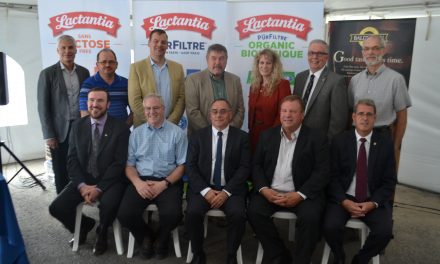GUELPH – Small business tax cuts and a reaffirmation of the fast-tracked minimum wage hike were highlights of Ontario’s fall economic statement released on Nov. 14. The Ontario Federation of Agriculture (OFA) noted three elements of the economic statement that are most relevant and have the most potential impact on their 37,000 farm members.
The province confirmed its intention to increase the minimum wage to $14 per hour on Jan. 1, 2018 and $15 per hour in 2019. OFA is extremely disappointed in the government’s decisions to clearly not consider the impact this swift shift will have on farmers and small businesses across the province. The province did announce additional support for the horticulture sector as one of the commodities that will be hardest hit by increases to minimum wage – committing $60-million over a two-year period through the Self-Directed Risk Management (SDRM) program.
Municipalities have been given the flexibility to determine how small-scale, on-farm processing activities are assessed for the value-added property tax. The change could be good news for value-added and commercial farm operations, now that municipalities can tax the first $50,000 of assessed value on “qualifying” operations at a rate that’s 75 per cent lower than the commercial or industrial tax rate that currently applies.
“The government has heard from the farm community that the minimum wage increases were too much, too soon and they have responded for the fruit and vegetable sector,” said OFA President Keith Currie, in the Nov. 16 release. “They have also heard OFA’s message of providing property tax relief for on-farm value-added activities.”
Ontario’s small business corporate tax will be reduced, as previously announced, from 4.5 per cent to 3.5 per cent. Coupled with the announcement that the federal small business tax rate will drop from 10.5 per cent to nine per cent by 2019, incorporated farm businesses (representing about 25 per cent of all farm businesses) will be able to reinvest additional after-tax dollars to expand their business.
The Ontario government also announced $124-million over three years to support jobs for youth, defined as ages 15 to 29. An employer with less than 100 employees, including farm operations, could receive a $1,000 incentive for hiring a young worker and $1,000 for retaining that worker for six months.
“We will continue to push for legislation and programs that will build prosperity for all Ontarians, including our farms and rural communities,” said Currie. “We’ll be focusing our messaging in the lead up to next spring’s provincial election on the issues that will have significant impact on the long-term, overall health of the Ontario economy. And our agri-food sector is at the top of that list.”
The Ontario Federation of Agriculture (OFA) is the largest general farm organization in Ontario, representing 37,000 farm families across the province. As a dynamic farmer-led organization based in Guelph, the OFA works to represent and champion the interests of Ontario farmers through government relations, farm policy recommendations, research, lobby efforts, community representation, media relations and more. OFA is the leading advocate for Ontario’s farmers and is Ontario’s voice of the farmer.












